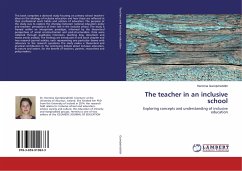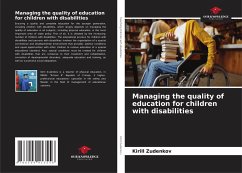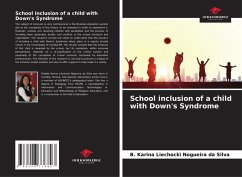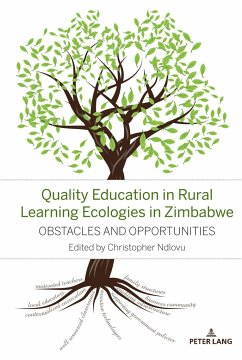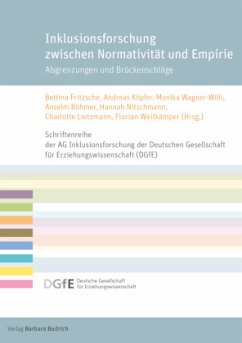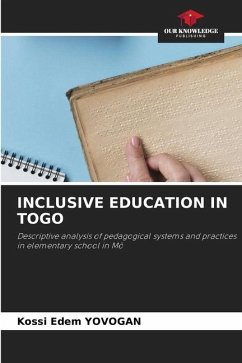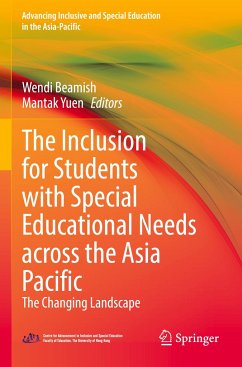
Inclusion and Exclusion in the Classroom
Reflections on daily life
Versandkostenfrei!
Versandfertig in 6-10 Tagen
41,99 €
inkl. MwSt.

PAYBACK Punkte
21 °P sammeln!
The proposed work focuses specifically on how managers, pedagogues and teachers evaluate the entrance of the visually impaired individual in Regular Education and the opinion of students and parents involved in the process. In this sense, the inclusion process of all individuals is discussed from a historical contextualization. We seek to understand the limits and possibilities of the implementation process of a policy in action, aiming at the removal of barriers to learning. The data revealed the challenges and the real conditions of the Institutions in relation to the following aspects: The ...
The proposed work focuses specifically on how managers, pedagogues and teachers evaluate the entrance of the visually impaired individual in Regular Education and the opinion of students and parents involved in the process. In this sense, the inclusion process of all individuals is discussed from a historical contextualization. We seek to understand the limits and possibilities of the implementation process of a policy in action, aiming at the removal of barriers to learning. The data revealed the challenges and the real conditions of the Institutions in relation to the following aspects: The historical background of the exclusion process and the reflections on current education, the thinking of managers, pedagogues, students and parents regarding the inclusion process, and the devices used in the classroom for the inclusion of all. The study revealed the advances and contradictions in view of the complexity of the inclusion of blind or low-vision students in regular education. It is understood that any kind of difference that is a reason for isolation and not active participation of the student in the activities proposed in the classroom should require a pedagogical rethinking aimed at valuing differences.



